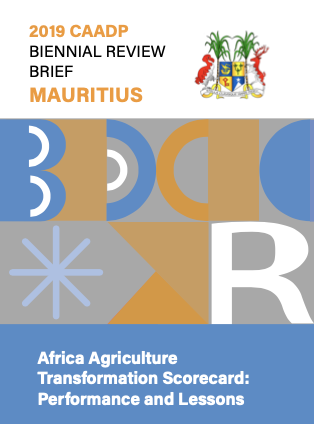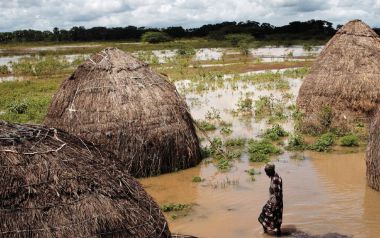I’m just off an overnight plane from East Africa, and while I’m not a Marvel fan, it was refreshing to see a theme dominated by Africans in the ‘Black Panther’ movie last night. Could Africa be helping itself towards the seemingly equitable prosperity of the fictional African country of Wakanda?
Africa’s performance scorecard for ending hunger and agricultural development is up and running. This isn’t fictional, and it could be a game-changer if it becomes mainstream to progressive policy decision-making.
What does it cover? Well quite a bit: nutrition status, dietary in-take, and social protection coverage and a slew of agricultural performance measures (e.g. fertiliser use, agricultural labour productivity, farmers with secure land rights….and many more). These are all areas that offer potential to drive economic development and improve human well-being. I addressed the background to this performance and accountability process in previous blogs ‘How exciting can an African Union ‘Biennial Review really be???’and ‘The Malabo race everyone can win!’
Happily, this story has 7 years to run rather than a couple of hours in the case of Black Panther, and many people have a role to play. A performance review and set of measures were requested by African Heads of State and Governments in 2014 for performance assessment in 2018, 2020, 2022, 2024. A laudable move. Though the proof of the pudding is in the eating. Will it make a difference? By 2024, we’ll certainly have insight into whether the SDGs 1 and 2 are within the realms of reality. If nothing much has changed by then these Biennial Reviews will have failed to influence what is happening in African countries.
How much competitive spirit is healthy in peer review? Presently, the ‘performance review moment’ involves an African Union (AU) plenary session at the Summit when Heads of State/Government examine a set of papers and messages compiled by the AU Commission. These are broken down into a regional picture, and an overview of performance is provided for the leader of each country. While this was the format in January’s AU Summit this year, it needn’t be the final format. Learning and evolving the format seems important to stimulate action. We are not at a genuine peer review process yet. There is celebration for top performers like Rwanda. I’m wondering whether investments to achieve genuine peer review might be better focused at a regional level, where peer competition is often closer today to day politics. Priorities for economic and development decisions are often made regionally e.g. on agriculture and trade. I’m unaware of Regional Economic Communities embracing the Biennial Review in discussions though this would be beneficial.
Catalysing progress requires a delicate balance of encouraging competition and ‘doffing one’s cap’ to political realities. For instance, at the outset, ranking countries 1-55, top to bottom, is judged too political and likely to encourage a negative atmosphere for comparison from those lower down, and even result in failure to provide data. Is this approach being too careful? We’ll see. Much could be learned from other national level peer review platforms. Perhaps worthy of another blog.
In January this year, each country had a score. It was not difficult for leaders to compare their own score with those of regional neighbours. The score also set out if countries are on track to meet what are in reality a set of highly ambitious targets. Many countries are off track, which invites another interesting set of issues relating to the balance between encouraging progress, by retaining a positive spin, and the reality that many countries (e.g. across the Sahel / Central Africa) are very far away from solving hunger. Somehow rhetoric by leaders at international summits must connect with real issues people face on the ground. Retaining confidence in the scoring system over the 7-year period is essential, particularly when it comes to understanding relative improvements.
Implications for policy?
What isn’t clear to me is whether countries took away any serious policy conclusions from the AU Summit discussions that are likely to have traction for regional and country policy. My sense is that this is where the focus needs to be in future.
A peer review process that might enable change in national and regional level policy and resources needs ownership by countries and facilitation by continental actors. This invites an interesting question about how to achieve a broader spread of ownership? It is hoped that a small set of African Heads of State could form a group of champions to help drive engagement and actions, though this is still to be formed.
It is shocking, though not surprising, that the Biennial Review is not better known. A recent two-day learning event hosted by the African Union Commission and NEPAD in Gabon at the end of April concluded firmly that the level of engagement and communications needs to be much stronger going forward, after a weak performance on communications before, during and after January’s 2018 report. Those tasked with the job had few resources to make it a reality, and too few senior people considered it a top priority.
Much more could be done to raise its profile and impact. For instance,
- A highly interactive public website available with all the data by country, regional and continent could allow technical agencies, journalists, universities and many other audiences to see the results and the data and analyse in a variety of ways for their own audiences.
- A summarised dashboard could help communicate highly complex information to Heads of State. Regional meetings could benefit from having a regional dashboard.
- Beyond dashboards, the AU Summits and regional meetings could more strongly draw out the big policy issues for the continent, regional and countries that are essential for progress (discussions are a bit process heavy at present).
- Cultivating a small army of champions in government, parliaments, media, companies, civil society and farmers groups across Africa would definitely help.
- Civil society organisations should wake up and smell the coffee of opportunity from this new political accountability mechanism.
- International donors and development banks could engage strategically to create a new architecture of financial support and positive prestige for countries that move their scores in a positive direction, from red, into amber, and towards green. This takes time, but ‘carrot’ is often better than ‘stick’.
- A policy decision to use existing instruments and programme investments within development partners (particularly bilateral donors and foundations) to help mainstream the Biennial Review performance process and its application for policy at country and regional level would be a powerful influence. Development partners can also systematically invest in data systems to ensure performance measures are not undermined by lack of information.
- Farmers, farmer associations and agribusiness are, quite understandably, central stakeholders when it comes to national and regional farming performance. Each could engage to build the tempo of interaction on the Biennial Review.
- Build and invest in leadership in the sector. The African Development Bank has a Leaders Group for Agriculture, what are they discussing? How might the African Green Revolution Forum help?
- The results provided by the Biennial Review could be segmented through a nutrition lens, included in the Global Nutrition Report, and used in various ways at regional and country level to draw political accountability to the issue.
- Equally, leading global efforts on social protection could leverage the information to build out a picture of coverage and engage to build momentum and links with agriculture and nutrition.
Coverage by the media has been meagre, the opportunity is there but successful on-going coverage needs effort and skill and resources for journalists and editors to feel to that this is ‘new and interesting’ news.
Inspired by Wakanda, we can challenge ourselves to envisage the future: what could success look like?
An unmistakable tempo of ambition and dynamic partnership to achieve the Biennial Review goals, with performance progress celebrated in many ways. This would be spurred by a myriad of actions touching on issues outlined in the bullets above. Each performance review by the AU Summit would be covered by the continent’s media with proactive engagement from many stakeholders before and after such Summits. Between meetings a group of Heads of State are championing the issue in a range of meetings with peers, and other stakeholders.
Above all, ordinary Africans, small-holder farmers, farmers associations, those working with agribusiness, parliamentarians, the media, development partners, civil society all have an interest to make this a successful political accountability tool. Is there a partnership platform to help manage coherence?
One day it would be exciting for any new Minister of Agriculture, Minister of Social Welfare, indeed even Minister of Trade, to automatically associate their performance and political star with the movement in the performance indicators in the review process. Is this wishful thinking?
Read the original blog here


